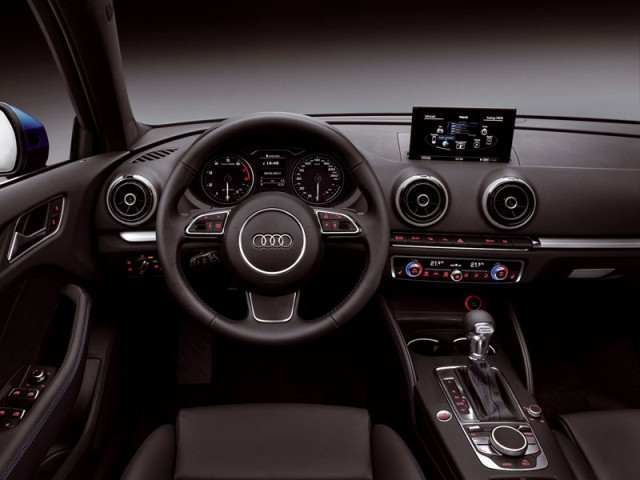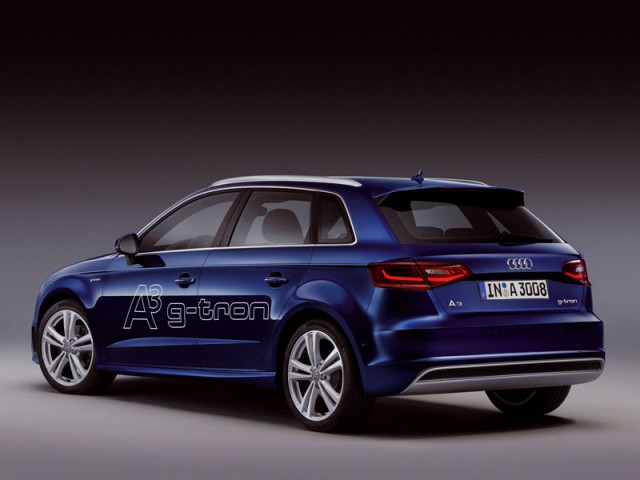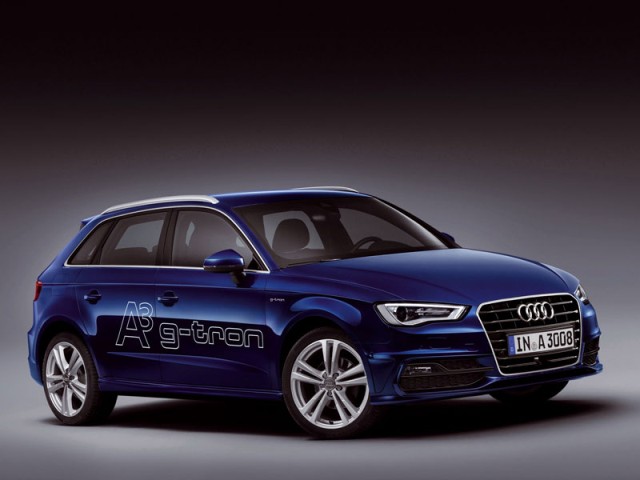
With the A3 Sportback g-tron, Audi has a great step towards sustainable mobility. The compact five-door, which will make its debut at the end of the year can take advantage of the CO2 neutral fuel Audi e-gas.
This will be produced in the future in the power-to-gas plant in Werlte. This brings this new automobile ecology, economy and high tech together on groundbreaking nature.
The Audi A3 Sportback g-tron transport the concentrated expertise of Audi technology - from the ultra-lightweight technology via the infotainment up to the driver assistance systems. But above all, it represents the state of the gas drive technology, starting with the storage of the fuel. His two tanks under the luggage compartment floor can save seven kilograms of gas at a maximum of 200 bar pressure. Within the meaning of ultra-lightweight construction principle weighs each tank 27 pounds less than a conventional counterpart.
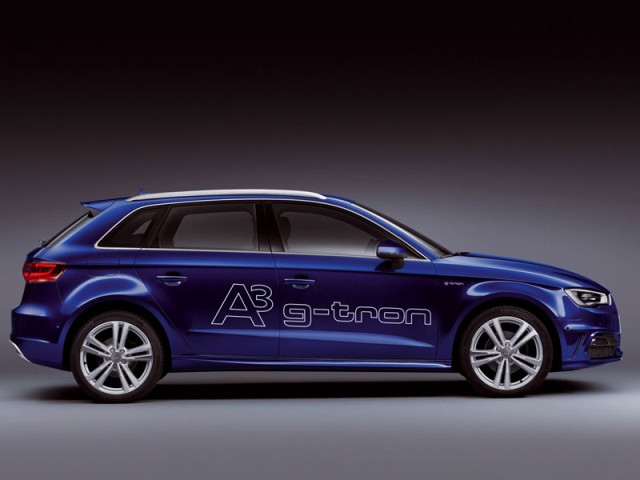
The tanks are made of a novel matrix. A layer of gastight polyamide forming the inner layer, a second layer of carbon fiber reinforced plastic (CFRP) ensures maximum strength, and a third, solid layer of glass fiber reinforced plastic (GRP) provides protection against damage from outside. As binders for fibrous materials is of high strength epoxy.
A second highlight of the A3 Sportback g-tron is the electronic gas pressure regulator. The compact and lightweight component reduces the high pressure with which the gas flows out of the bottle, in two stages bar on about five to nine. This is the gas rail and the injection valves in the correct pressure is always ready - for efficient driving in the lower speed range, it is low, when the driver retrieves power and torque, it rises.
Once the pressure in the tank drops below ten bar, the engine management system automatically switches to petrol mode. The Audi A3 Sportback g-tron is fully bivalent, that is, its performance figures are in the gas and on gasoline identical. With gas he drives - set the standard consumption based - about 400 km, if necessary with petrol further 900 km, and the total range is in the order of an Audi TDI.
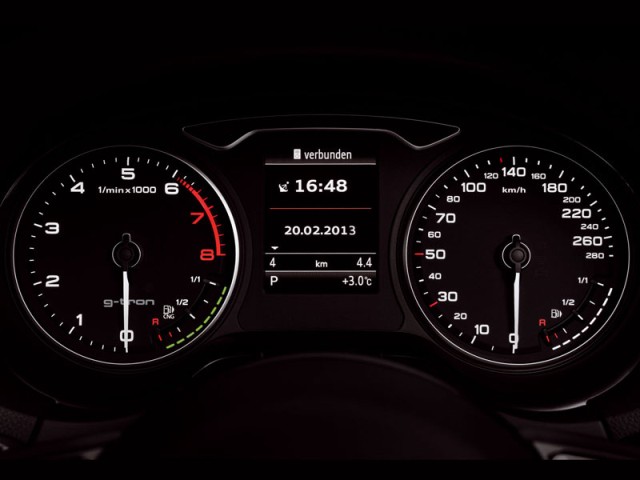
Two displays in the instrument cluster keep the driver informed about the levels of the tanks in the loop. In addition, the driver information system displays the current fuel consumption, depending on the current operating mode. Both under a common filler flap. After filling up, and in extreme cold the engine starts first with petrol and then switches as soon as possible in order to gas.
The unit is based on the new 1.4 TFSI. Substantial modifications relate to the cylinder head, the turbocharger, the injection system and the catalyst. With 81 kW (110 hp) and 200 Nm of torque, the Audi A3 Sportback g-tron over 190 km / h top speed, the sprint from 0 to 100 km / h takes 11 seconds. To 100 km in the middle of the five-door model consumes less than 3.5 kilograms of natural gas or Audi e-gas - the fuel that creates the Audi e-gas project from green power. The CO2 emissions from the exhaust gas is in operation less than 95 grams per km.
Even more attractive is the greenhouse gas balance in the well-to-wheel analysis, which includes all factors of the source of fuel to the wheel with. During operation of the A3 Sportback g-tron Audi e-gas with no CO2 is released, which had not been previously linked in the production - the circuit is closed. If one in a comprehensive approach to energy expenditure on the construction of the e-gas plant and the construction of wind power plants involving, CO2 emissions still remains below 30 grams per km.
The customers of the Audi A3 Sportback g-tron, the e-gas quantities that fill them to the public CNG filling stations, refer Expected a billing method, as well as similar in terms of green energy exists.
